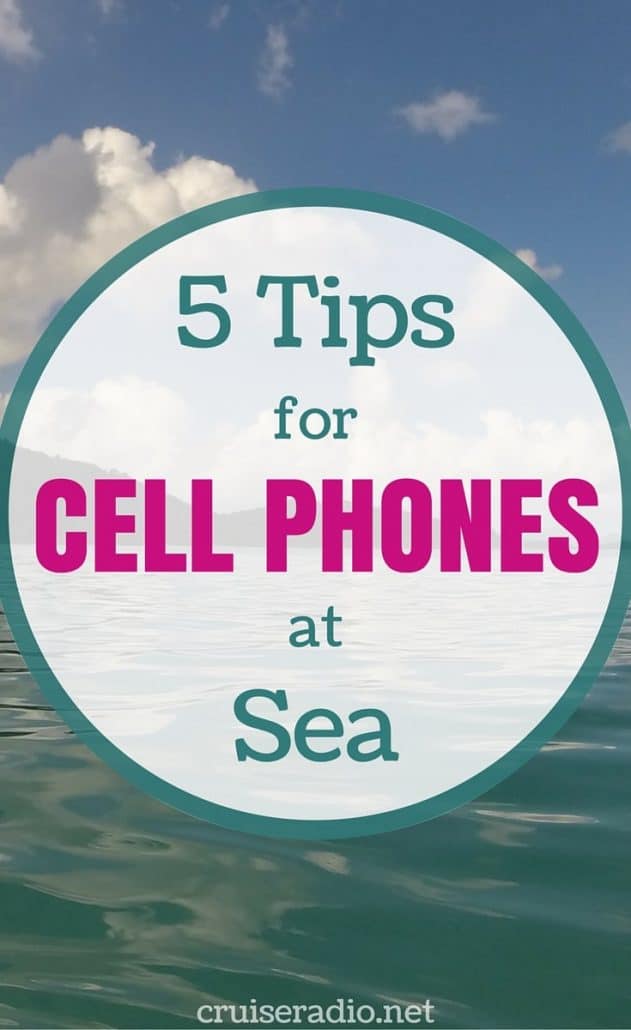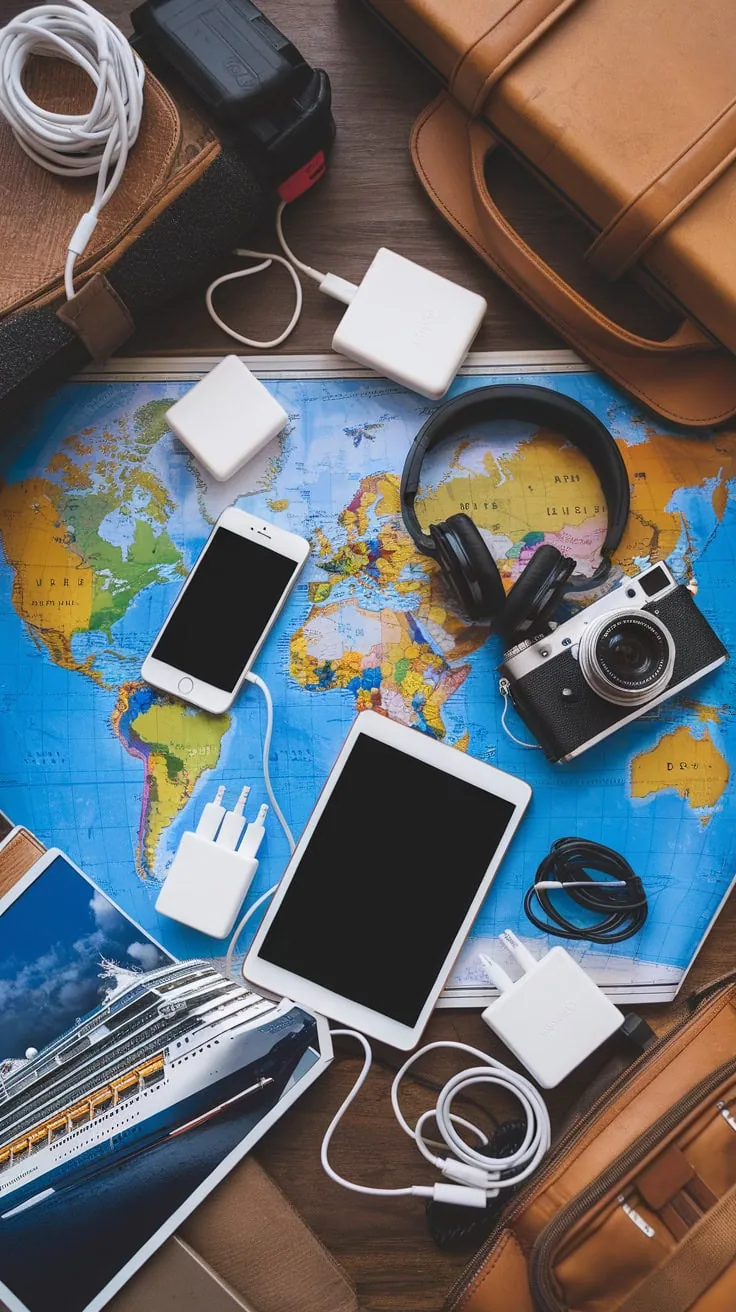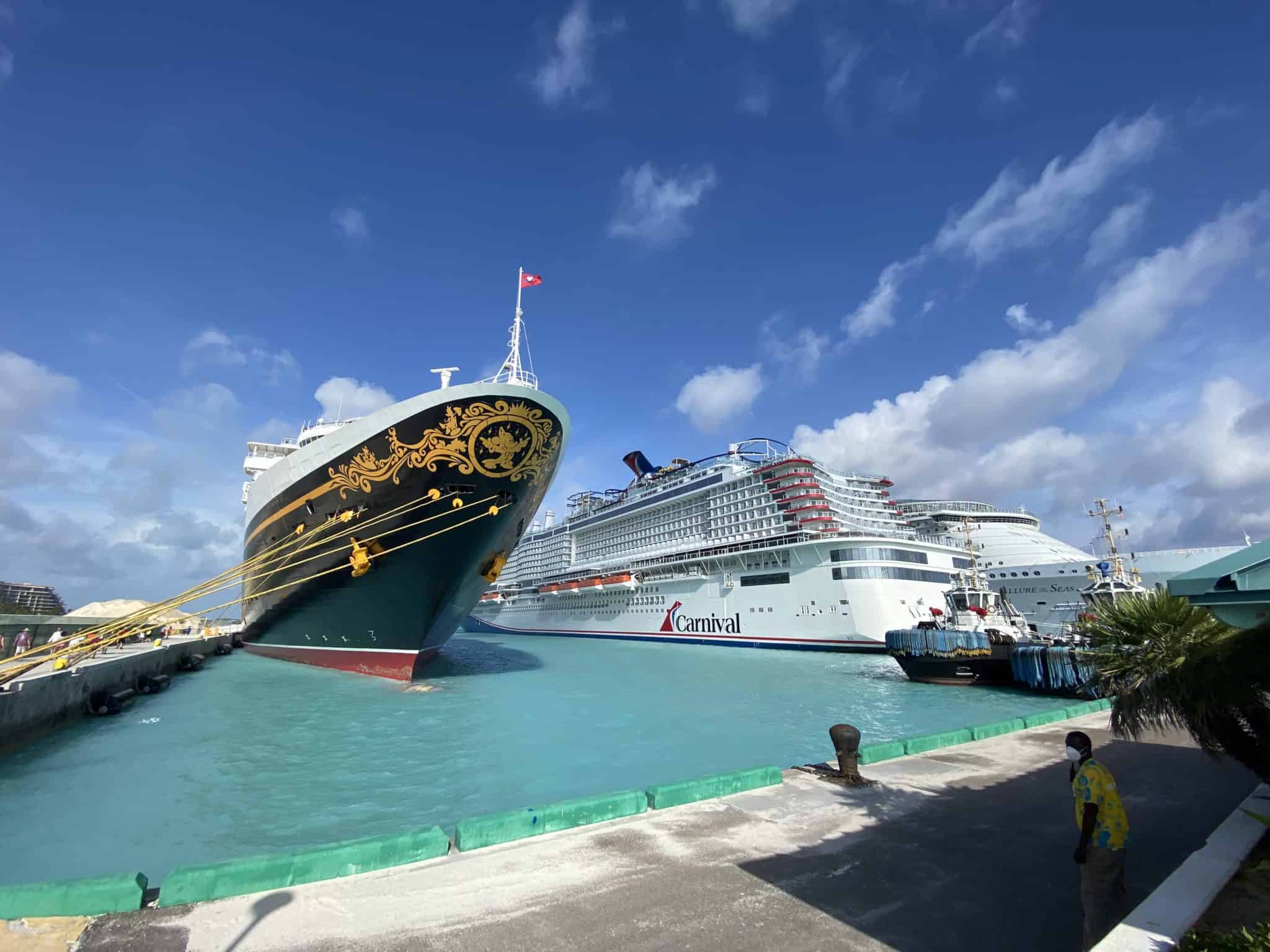In the early 2000s, a cruise vacation meant complete disconnection. Ship-to-shore calls cost around $9.99 per minute, and internet access at sea was nonexistent. Some say cruising during a much simpler time was better.
Today, using your smartphone at sea comes with its own set of guidelines.
Before stepping on the ship, remember these tips to avoid unexpected charges.
1. Turn on Airplane Mode Right Away
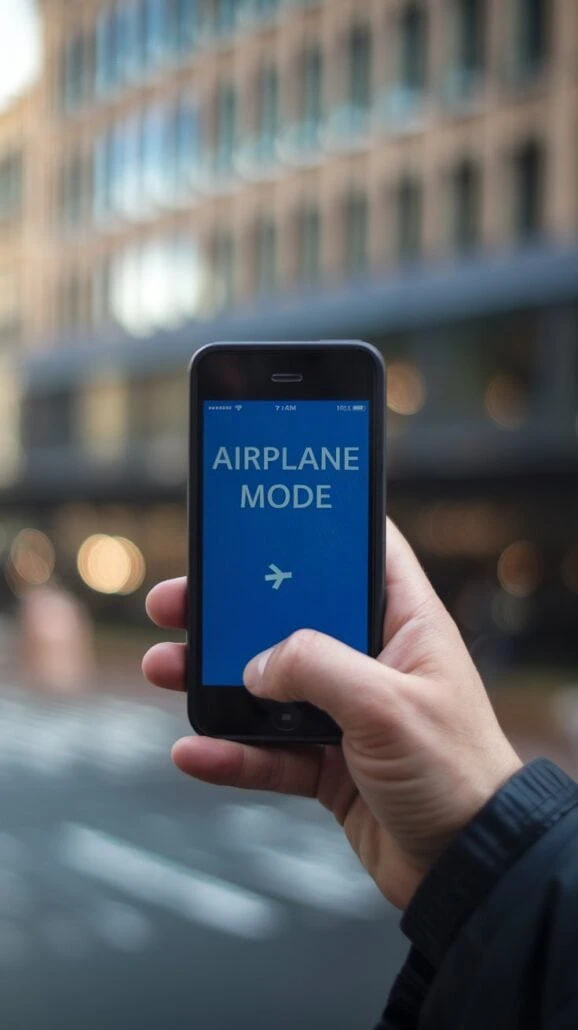
The quickest way to avoid costly surprises is simple: put your phone in airplane mode as soon as you step onboard. If you have to make some last-minute calls or post, send a reminder on your phone to switch it off before hitting international waters.
Even when not using your phone, apps can download emails or update automatically in the background, quickly accruing expensive international roaming charges.
Don’t be like the kid who racked up a $14,000 cell phone bill on his cruise.
2. Understand Cellular at Sea
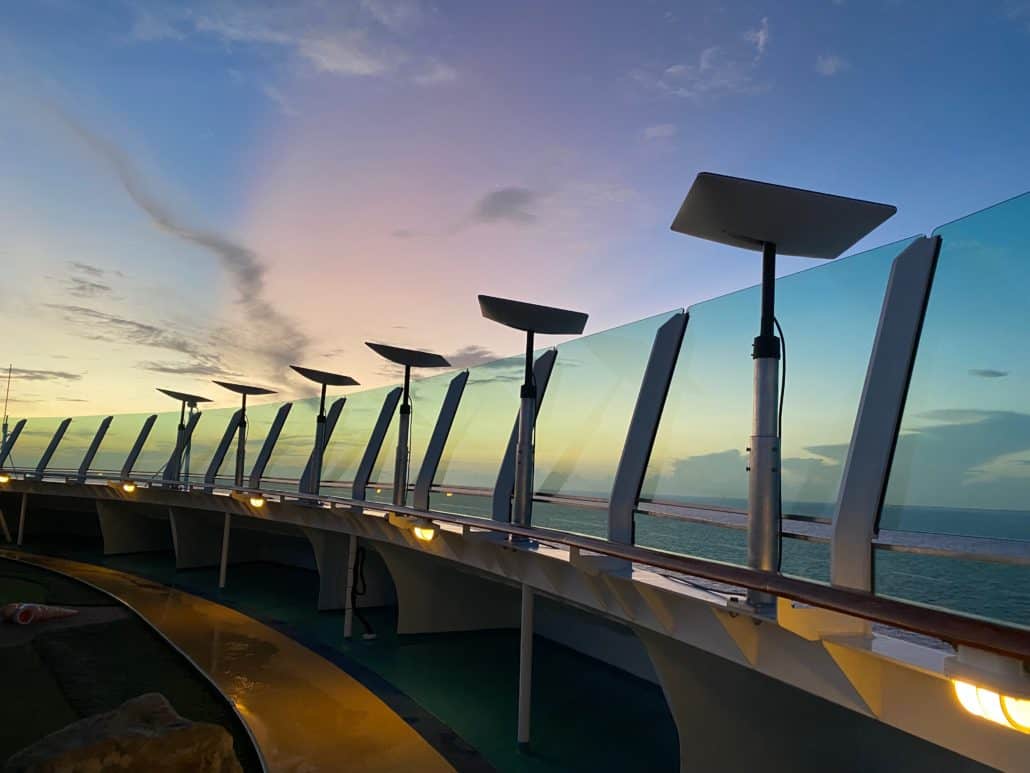
Just because your phone shows a signal doesn’t mean you’re connected to a regular cellular network. Once your ship sails roughly 12 miles offshore, your phone might connect automatically to satellite-based services known as “Cellular at Sea” or “WMS (Wireless Maritime Services).”
These services can cost around $2.49 per minute for phone calls and about $0.50 per text, though rates vary by carrier. Better yet, $20 per megabyte. For context, some photos are six megabytes on the iPhone… or $120 to send that one sunset photo!
3. Explore International Cruise-Friendly Plans

Check your carrier’s international packages before you set off for a cruise. You might also want to consider using eSIM plans tailored specifically for cruising.
For example, AT&T offers cruise packages that include talk, text, and a set amount of data. Similarly, T-Mobile often provides free international data roaming with some of its plans, which can be used in cruise ports.
Doing a bit of homework upfront can save you money and stress at sea.
4. Utilize Shipboard Internet
Most cruise lines now use Starlink Maritime to access the internet onboard. A Wi-Fi package lets you bypass cellular charges altogether.
Depending on your package, you can use popular apps like WhatsApp, Facetime, and Messenger to stay in touch, send photos, or even video chat with friends and family back home.
5. Charges Are Billed to Your Phone Bill

An important note for first-time cruisers: any charges incurred using cellular service onboard won’t show up on your ship’s account.
Instead, your cell phone provider will bill you directly for these charges, often appearing on your monthly bill after your trip.
Do you not think it can happen? Ask this guy who racked up over $600 in data charges, not realizing his cell phone plan did not include data while out of the country.
To recap
- Check with Your Cruise Line: Each cruise line offers different internet packages and rates. Some, like Royal Caribbean, Celebrity, and Norwegian Cruise Line, may bundle discounted rates into pre-cruise promotions.
- Understand Satellite Connectivity: Modern ships typically activate satellite-based services about 12 miles offshore. Understanding when and how this happens can help you avoid unexpected charges.
- Use App-Based Messaging: With onboard Wi-Fi packages, you can use apps like WhatsApp, Skype, Facebook Messenger, or iMessage to stay connected without incurring cellular charges.
- Download the cruise line app. Some of the cruise lines have in-app messaging services.
- To manage costs:
- Keep Your Phone in Airplane Mode: This ensures you control when and how your phone connects. Remember that your phone uses data in the background.
- Use Wi-Fi for Communication: Utilize onboard Wi-Fi to send messages or make calls through apps, avoiding cellular charges.
